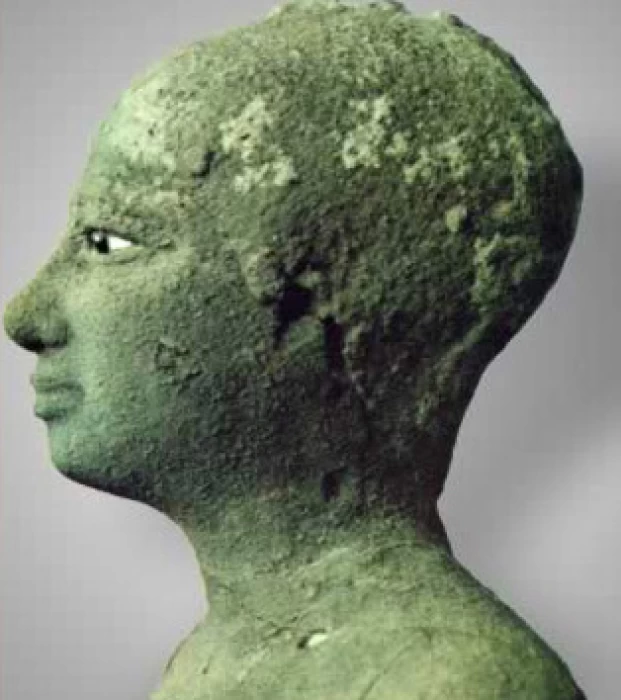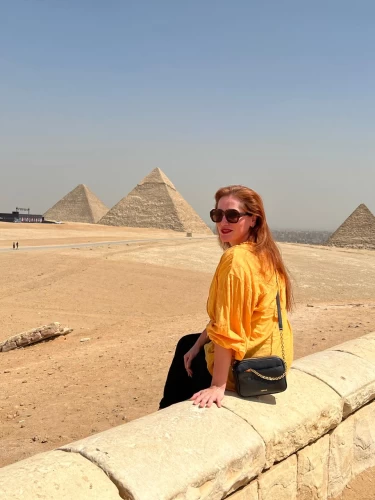
King Merenre II
King Merenre II
Merenra Nemtyemsaf (II), or Merenra II ("the Beloved of Ra"), was the sixth pharaoh of the 6th dynasty of Egypt, from c. 2184 to 2183 BCE.
It seems that he was initially under the tutelage of his mother, named with him in the document that recalls an expedition to Sinai that took place in the fourth year of his reign. Fragments of papyrus of a much later date tell that he was discovered while making long and secret visits to one of his generals in the middle of the night, a story entirely in the spirit of Herodotus.
He was a good ruler, energetic when necessary, but it was during the last period of his reign, perhaps too long, that the collapse of the monarchy was prepared, even if in that period there seems to have been no attempts by the nòmarchi to accentuate or accelerate the autonomist movement.
Some of the Nubian adventures mentioned on rock inscriptions also date back to his reign, but little else is known about him, despite long years of government.
However, he had plenty of time to devote himself to building his own pyramid south of Saqqara, larger than those of his immediate predecessors. Beyond that, all that remains is to remember some decrees of immunity and the "autobiography" of a prince, governor of the twelfth nome of Upper Egypt.
This prince, named Djau, boasts of having obtained from the king the material to erect a splendid tomb for his father. Little to satisfy the historian's appetite, but reading between the lines of inscriptions of this kind we cannot help but notice the gradual weakening of the monarchy, undoubtedly due to the decline of the sovereign's power.
According to one of the most accredited historical reconstructions, the second Merenra of the 6th dynasty was a sovereign without energy or a clear political vision, unable to exercise the authority with which he was invested, and who tolerated the decline of institutions and unrest; this weak and idealistic king was willing to forgive other people's mistakes and tolerant of the violent.
It also appears that his mummy was desecrated not long after his death.
Cruise the blue waters through the two green strips on either side of the golden desert when you book your Egyptian Nile cruise. And check out our seasonal offers to choose the most suitable guesthouse or vacation home for your Easter vacation 2024. We'll save you the hassle and include some of the best hotels and ships in all the cities you'll visit through Egypt travel packages, but if you prefer to book your own hotel, we've professionally customized a wide variety of Egypt day trips for you, Start in the city that never sleeps and explore our Cairo day tours, which cover all the archaeological sites and entertainment venues, from the Pyramids of Giza and the famous Sphinx to the Egyptian Museum in El Tahrir Square and the National Museum of Egyptian Civilization to see the golden mask of King Tutankhamun. And if you feel like camping in one of the most fascinating deserts in the world, we have created the White Desert Routes. Travel safely with us to Upper Egypt and book our day tours to Luxor and travel further south to breathtaking Nubia and explore all the options offered by our day tours to Aswan.















